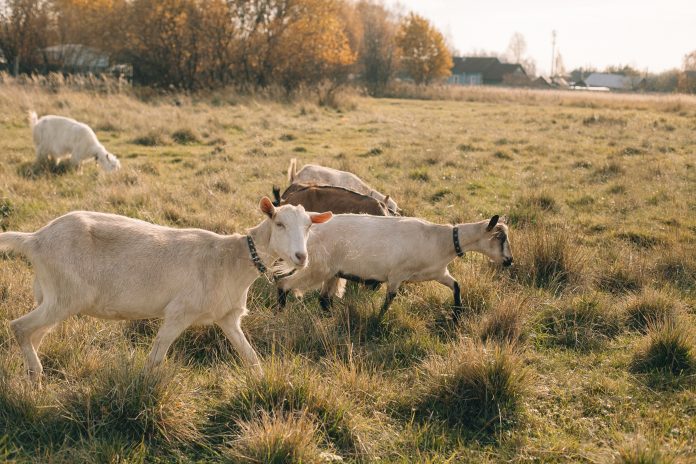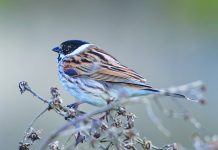Project: Since 2016, the City has had great success in using goats to help manage invasive weeds like Canada thistle. A herd of 260 goats grazed in the 40-hectare Rubbing Stone Hill Natural Parkland Zone of Nose Hill for 30 days, beginning when most vegetation was dormant. The bison normally used this area during the fall and winter, so plants were not grazed during the season of active growth. Therefore, the primary influence of grazing would be to remove dead plant material. This will allow for the greatest plant diversity while providing habitat for all wildlife species currently using the park.
Goal: The primary purpose of the project was to initiate a multi-year grazing program primarily for the protection of natural grassland and shrub-dominated habitat. The area is currently very heavily used. Management priorities are to minimize damage to the natural habitat by rehabilitating trails, controlling weed species, and maintaining natural vegetation. The use of livestock to manage grass and weeds (targeted grazing) is different than traditional grazing for livestock production and had to be exempted from requiring a development permit when done by or for the City, by changes to both the Land Use and Responsible Pet Ownership Bylaws.
Consultation and Public Feedback: During the pilot project, 95% of the 40 service request 311 calls were positive. The City also held open houses inviting stakeholders to provide input: 44 of 57 written comments on urban grazing supported the use of livestock for land management on City-owned land. Some comments gave support conditional on it saving money when compared with the alternatives, such as mechanical (hand pulling) and spraying. Goat grazing is a chemical-free way to control weeds, with project costs close to that of conventional herbicide application.










